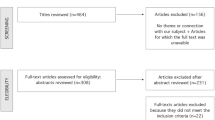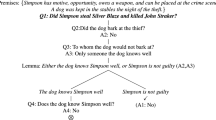Abstract
In recent years the Chemical Revolution has become a renewed focus of interest among historians of science. This interest isshaped by interpretive strategies associated with the emergence anddevelopment of the discipline of the history of science. The disciplineoccupies a contested intellectual terrain formed in part by thedevelopment and cultural entanglements of science itself. Threestages in this development are analyzed in this paper. Theinterpretive strategies that characterized each stage are elucidatedand traced to the disciplinary interests that gave rise to them. Whilepositivists and whigs appropriated the history of science to thejustificatory and celebratory needs of science itself, postpositivistslinked it to philosophical models of rationality, and sociologists ofknowledge sought its sociological reconstruction. Since none of thesestrategies do justice to the complexity of historical events, a modelof the Chemical Revolution is outlined which upholds the autonomyand specificity of history and the methods used to study it.
Similar content being viewed by others
REFERENCES
W. R. Albury. The Logic of Condillac and the Structure of French Chemical and Biological Theory, 1781-1801. Ph.D. Thesis, Baltimore, MD: Johns Hopkins University, 1972.
L. Althusser. Reading Capital, transl. by B. Brewster. London: New Left Books, 1968.
L. Althusser. For Marx, transl. by B. Brewster. New York, NY: Vintage Books, 1970.
L. Althusser. Lenin and Philosophy and Other Essays, transl. by B. Brewster. New York, NY: Monthly Review Press, 1971.
W. Anderson. Between the Library and the Laboratory: The Language of Chemistry in Eighteenth-Century France, 1760-1820.Baltimore, MD: Johns Hopkins University Press, 1984.
B. Barnes. Scientific Knowledge and Sociological Theory. London: Routledge and Kegan Paul, 1974.
B. Barnes. T.S. Kuhn and the Social Sciences. New York, NY: Columbia University Press, 1982.
B. Bensaude-Vincent. Hélène Metzger's La Chimie: A Popular Treatise. History of Science 25: 71–84, 1987.
B. Bensaude-Vincent. The Balance: Between Chemistry and Politics. The Eigtheenth Century: Theory and I. Interpretation 33: 217–238, 1992.
B. Bensaude-Vincent and I. Stengers.A History of Chemistry, transl by D. van Dam. Cambridge,MA: Harvard University Press, 1996.
M. Beretta. The Enlightenment of Matter: The Definition of Chemistry from Agricola to Lavoisier. Canton, MA: Science History Publications, 1993.
D. Bloor. Knowledge and Social Imagery, 2nd ed. Chicago, IL: University of Chicago Press, 1976.
D. Bloor. Durkheim and Mauus Revisited: Classification and the Sociology of Knowledge. Studies in the History and Philosophy of Science 13: 267–287, 1982.
J.R.R. Christie. The Development of the Historiography of Science. In: R.C. Olby, G.N. Cantor, J.R.R. Christie and M.S. Hodge (Eds.), Companion to the History of Modern Science, pp. 4–22. London: Rutledge, 1990.
J.R. Christie and J.Y. Golinski. The Spreading of the Word: New Directions in the Historiography of Chemistry, 1600-1800. History of Science 20, 235–266, 1982.
P. Cilliers. Complexity and Postmodernism. Understanding Complex Systems. London: Routledge, 1998.
I.B. Cohen. Franklin and Newton: An Inquiry into Speculative Newtonian Science and Franklin's Work as an Example Thereof. Philadelphia, PA: American Philosophical Society, 1956.
I.B. Cohen. The Many Faces of the History of Science: A Font of Examples for Philosophers, a Scientific Type of History, an Archaeology of Discovery, a Branch of Sociology, a Variant of Intellectual or Social History - or What?. In: C.F. Dessell (Ed.), The Future of History. Essays in the Vanderbilt Centennial Symposium, pp. 3–42. Nashville, TN: Vanderbilt University Press, 1977.
R.G. Collingwood. An Autobiography. Oxford: Oxford University Press, 1939.
E.W. Constant II. Communities and Hierarchies: Structure in the Practice of Science and Technology. In: R. Laudan (Ed.), The Nature of Technological Knowledge. Are Models of Scientific Change Relevant?, pp. 27–43. Dordrecht: Reidel, 1984.
M. Crosland, Lavoisier's Theory of Acidity. Isis 64: 306–325, 1973.
P. Dews. Althusser, Structuralism, and the French Epistemological Tradition. In: G. Eliot (Ed.), Althusser: A Critical Reader, pp. 104–141. London: Blackwell, 1994.
A. Donovan. Lavoisier and the Origins of Modern Chemistry. In: A. Donovan (Ed.), The Chemical Revolution. A Reinterpretation. Osiris, 2nd series, volume 4, pp. 214–231. Philadelphia, PA: History of Science Society, 1988.
A. Donovan. Lavoisier as Chemist and Experimental Physicist: A Reply to Perrin. Isis 81: 270–272, 1990.
M. Fichman. French Stahlism and Chemical Studies of Air, 1750-1770.Ambix 18: 94–123, 1971.
D. Forbes. Scientific Whiggism: Adam Smith and John Miller. Cambridge Journal 7: 643–670, 1954.
M. Foucault. The Archaeology of Knowledge and the Discourse on Language, transl by A.M. Sheridan Smith. New York, NY: Harper and Row, 1972.
T. Frangsmyr. Science or History: George Sarton and the Positivist Tradition in the History of Science. Lychnos 74: 104–144, 1973.
J.V. Golinski. Science in the Enlightenment. History of Science 24: 411–424, 1986.
J.V. Golinski. Science as Public Culture: Chemistry and Enlightenment in Britain, 1760-1820. Cambridge: Cambridge University Press, 1992.
M. Gordy. Reading Althusser: Time and the Social Whole. History and Theory 22: 1–21, 1983.
J.B. Gough. The Origins of Lavoisier's Theory of the Gaseous State. In: H. Woolf (Ed.), The Analytic Spirit. Essays on the History of Science in Honor of Henry Guerlac, pp. 15–39. Ithaca, NY: Cornell University Press, 1981.
J.B. Gough. Lavoisier and the Fulfillment of the Stahlian Revolution. In: A Donovan (Ed.), The Chemical Revolution. Essays in Reinterpretation, Osiris, 2nd series, Volume 4, pp. 15–33. Philadelphia, PA: History of Science Society, 1888.
H. Guerlac. Lavoisier - the Crucial Year: The Background and Origin of His First Experiments on Combustion in 1772. Ithaca, NY: Cornell University Press, 1961.
H. Guerlac. Some Historical Assumptions of the History of Science. In: A.C. Crombie (Ed.), Scientific Change, pp. 797–812. New York, NY: Basic Books, 1963a.
H. Guerlac. Discussion. In: A.C. Crombie (Ed.), Scientific Change, pp. 875–876. New York, NY: Basic Books, 1963b.
J. Habermas. Knowledge and Human Interest, transl. by J.J. Shapiro. Boston, MA: Beacon Press, 1968.
A.R. Hall. Merton Revisited: Or Science and Society in the Seventeenth Century. History of Science 2: 1–16, 1963.
G. Hartfoort. The Missing Synthesis in the Historiography of Science. History of Science 24: 207–216, 1997.
P.M. Heimann and J.E. McGuire. Newtonian Forces and Lockean Powers: Concepts of Matter in Eighteenth-Century Thought. Historical Studies in the Physical Sciences 3: 233–306, 1970.
F.L. Holmes. Lavoisier and the Chemistry of Life. An Explanation of Scientific Creativity. Madison,WI: University of Wisconsin Press, 1985.
F.L. Holmes. Eighteenth-Century Chemistry as an Investigative Enterprise. Office for History of Science and Technology, Berkeley, CA: University of California, 1989.
D. Knight. Ideas in Chemistry. A History of the Science. New Brunswick, NJ: Rutgers University Press, 1992.
A. Koyré. Commentary. In: A.C. Crombie (Ed.), Scientific Change, pp. 797–812. New York, NY: Basic Books, 1963.
A. Koyré. Metaphysics and Measurement. Essays in Scientific Revolution. Cambridge,MA: Harvard University Press, 1968.
H. Kragh. An Introduction to the Historiography of Science. Cambridge: Cambridge University Press, 1987.
T.S. Kuhn. The Structure of Scientific Revolutions, 2nd ed., enlarged. Chicago, IL: University of Chicago Press, 1970.
I. Lakatos. History of Science and its Rational Reconstruction. In: C. Howson (Ed.), Method and Appraisal in the Physical Sciences. The Critical Background to Modern Science, 1800-1905, pp. 7–39. Cambridge: Cambridge University Press, 1981.
B. Latour. Science in Action: How to Follow Scientists and Engineers through Society. Cambridge, MA: Harvard University Press, 1987.
B. Latour and S. Woolgar. Laboratory Life: The Social Construction of Scientific Facts. London: Sage Publications, 1979.
L. Laudan. Progress and its Problems: Toward a Theory of Scientific Growth. Berkeley, CA: University of California Press, 1977.
H. LeGrand. Lavisier's Oxygen Theory of Acidity. Annals of Science 24: 1–18, 1972.
J.G. McEvoy. The Enlightenment and the Chemical Revolution. In: R.S. Woolhouse (Ed.), Metaphysics and the Philosophy of Science in the Seventeenth and Eighteenth Centuries. Essays in Honor of Gerd Buchdahl, pp. 307–325. Dordrecht: Kluwer Academic Publishers, 1988a.
J.G. McEvoy. Continuity and Discontinuity in The Chemical Revolution. In: A Donovan (Ed.), The Chemical Revolution. Essays in Reinterpretation, Osiris, 2nd series, Volume 4, pp. 195–213. Philadelphia, PA: History of Science Society, 1988b.
J.G. McEvoy. The Chemical Revolution in Context. The Eighteenth Century: Theory and Interpretation 33: 198–216, 1992.
J.G. McEvoy. Priestley Responds to Lavoisier's Nomenclature: Language, Liberty, and Chemistry in the English Enlightenment. In: B. Bensaude-Vincent and F. Abbri (Eds.), Lavoisier in European Context. Negotiating a New Language for Chemistry, pp. 123–142. Canton, MA: Science History Publications, 1995.
J.G. McEvoy. Positivism, Whiggism, and the Chemical Revolution: A Study in the Historiography of Chemistry. History of Science 35: 1–33, 1997.
E. McMullin. The Rational and the Social in the History of Science. In: J.R. Brown (Ed.), Scientific Rationality: The Sociological Turn, pp. 127–163. Dordrecht: Reidel, 1984.
E. Melhado. On the Historiography of Science: A Reply to Perrin. Isis 81: 273–276, 1990.
R.J. Morris. Lavoisier and the Caloric Theory. British Journal of the History of Science 6: 1–38, 1972.
G. Motzkin. The Catholic Response to Secularization and the Rise of the History of Science as a Discipline. Science in Context 3: 203–222, 1989.
A. Musgrave. Why Did Oxygen Supplant Phlogiston? Research Programmes in the Chemical Revolution. In: Method and Appraisal in the Physical Sciences. The Critical Background to Modern Science, 1800-1905, pp. 181–209. Cambridge: University of Cambridge Press, 1976.
C.E. Perrin. Research Traditions, Lavoisier, and the Chemical Revolution. In: A. Donovan (Ed.), The Chemical Revolution. A Reinterpretation, Osiris, 2nd series, Volume 4, pp. 53–81. Philadelphia, PA: History of Science Society, 1988.
C.E. Perrin. Chemistry as a Peer of Physics: A Response to Donovan and Melhado on Lavoisier. Isis 81: 259–270, 1990.
R. Porter. Preface. In: R. Porter and M. Teich (Eds.), The Enlightenment in National Context, pp. v–xii. Cambridge: Cambridge University Press, 1981.
K.R. Popper. The Logic of Scientific Discovery, 2nd ed., revised. London: Hutchinson, 1968.
K.R. Popper. Objective Knowledge. An Evolutionary Approach. Oxford: Clarendon Press, 1972.
I. Prigogine and I. Stengers. Order out of Chaos: Man's New Dialogue with Nature. Toronto: Bantam Books, 1984.
L. Roberts. A Word and the World: The Significance of Naming the Calorimeter. Isis 82: 199–222, 1997a.
L. Roberts. Setting the Table: The Disciplinary Development of Eighteenth-Century Chemistry as Read through the Changing Structure of its Tables. In: P. Dear (Ed.), The Literary Structure of Scientific Argument, pp. 99–132. Philadelphia, PA: University of Pennsylvania Press, 1991b.
R. Sargent. The Diffident Naturalist. Robert Boyle and the Philosophy of Experiment. Chicago, IL: University of Chicago Press, 1995.
S. Schaffer. Natural Philosophy. In: G.S. Rousseau and R. Porter (Eds.), The Ferment of Knowledge: Studies in the Historiography of Eighteenth-Century Science, pp. 55–92. Cambridge: Cambridge University Press, 1980.
S. Schaffer. Making Certain. Social Studies of Science 14: 137–152, 1984.
S. Schaffer. Measuring Virtue: Eudiometry, Enlightenment, and Pneumatic Medicine. In: A. Cunningham and R. French (Eds.), The Medical Enlightenment, pp. 218–318. Cambridge: Cambridge University Press, 1990.
R.E. Schofield. Joseph Priestley: Natural Philosopher. Ambix 14: 1–15, 1967.
S. Shapin. Social Uses of Science. In: G.S. Rousseau and R. Porter (Eds.), The Ferment of Knowledge: Studies in the Historiography of Eighteenth-Century Science, pp. 93–139. Cambridge: Cambridge University Press, 1980.
S. Shapin. History of Science and its Sociological Reconstructions. History of Science 20: 157–211, 1982.
S. Shapin. Pump and Circumstance: Robert Boyle's Literary Technology. Social Studies of Science 14: 481–520, 1984.
S. Shapin. Following Scientists Around: Essay Review of Bruno Latour, 'science in Action'. Social Studies of Science 19: 533–550, 1988.
S. Shapin. The Scientific Revolution. Chicago, IL: University of Chicago Press, 1996.
S. Shapin and S. Schaffer. Leviathan and the Air-Pump: Hobbes, Boyle, and the Experimental Life. Princeton, NJ: Princeton University Press, 1985.
R. Siegfried. The Chemical Revolution in the History of Chemistry. In: A. Donovan (Ed.), The Chemical Revolution. Essays in Reinterpretation, Osiris, 2nd series, Volume 4, pp. 34–50. Philadelphia, PA: History of Science Society, 1988.
R. Siegfried and B.J.T. Dobbs. Composition, a Neglected Aspect of the Chemical Revolution. Annals of Science 24: 273–293, 1968.
J. Simon. The Chemical Revolution and Pharmacy. Ambix 44: 1–13, 1998.
M. Teich. Afterword. In: R. Porter and M. Teich (Eds.), The Enlightenment in National Context, pp. 215–217. Cambridge: Cambridge University Press, 1981.
A. Thackray.Atoms and Powers: An Essay on Newtonian Matter Theory and the Development of Chemistry. Cambridge,MA: Harvard University Press, 1970.
A. Thackray. Science: Has Its Present Past a Future?. In: R.H. Stuewer (Ed.), Historical and Philosophical Perspectives of Science, pp. 112–133. New York, NY: Gordon and Breach, 1989.
S.E. Toulmin. Crucial Experiments: Priestley and Lavoisier. Journal of the History of Ideas 18: 205–222, 1957.
S.T. Toulmin. Human Understanding. Princeton, NJ: Princeton University Press, 1972.
F. Verbruggen. How to Explain Priestley's Defense of Phlogiston. Janus 54: 47–69, 1972.
R.S. Westman and D.C. Lindberg. Introduction. In: R.S. Westman and D.C. Lindley (Eds.), Reappraisals of the Scientific Revolution, pp. xvii–xxvii. Cambridge: Cambridge University Press, 1990.
Author information
Authors and Affiliations
Rights and permissions
About this article
Cite this article
McEvoy, J.G. In Search of the Chemical Revolution: Interpretive Strategies in the History of Chemistry. Foundations of Chemistry 2, 47–73 (2000). https://doi.org/10.1023/A:1009968823008
Issue Date:
DOI: https://doi.org/10.1023/A:1009968823008




